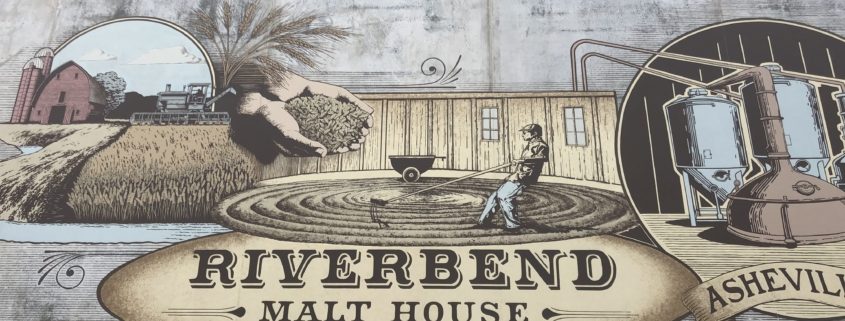Riverbend Malt House Publishes 2021 Year in Review

Riverbend Malt House is coming off of a record year in business that included significant production and footprint expansion, increased recycling and waste reduction, and a celebration of their last decade in the craft malt business, among other community milestones. Here is the Riverbend Malt House’s 2021 Year in Review.
Production
In 2021, Riverbend Malt House added a 10-tonne Germination Kiln Vessel (GKV) unit to its production facility in June. This state-of-the-art equipment increased the overall malthouse capacity by 40 percent, enabling Riverbend to meet growing demand for craft malt among breweries and distilleries throughout the Southeast.
Throughout the year, Riverbend malted 2.6 million pounds of 14 varieties of malt, which included 20 tons of malt with 12 different flavor combinations for specialty projects.
Development
In 2021, Riverbend proudly expanded its agricultural and sales footprints across its home state of North Carolina, as well as sourcing grain from South Carolina, Georgia, Florida, Tennessee, Kentucky, Virginia, and Washington DC to meet industry demand for high quality craft malt that adds value and locality to craft beer and spirits made across the region. 272 breweries and distilleries purchased Riverbend craft malt last year, of which more than a third are new to the malt house’s customer base.
Environmental Commitment
In August, Riverbend announced the achievement of a recycling milestone of 100,000 pounds of rootlet material repurposed for use by nearby cattle operations. This recycling effort is one of many sustainability initiatives that Riverbend supports. Additional environmental initiatives include electricity and natural gas consumption tracking, composting, and solid waste management.
Over the course of the year, Riverbend reduced its carbon emissions per pound of malt produced by 3.3%, composted eight tons of organic waste in partnership with the WNC Brewery Recycling Co-op, and redirected approximately 140,000 pounds of waste from landfill in 2021. “Now that the co-op is up and running, we hope to expand our efforts with customer pickup at select accounts during 2022,” says Riverbend Co-Founder Brent Manning. “We’ll work to increase efficiency with new equipment and expand our composting efforts as well.”
Read Riverbend’s full sustainability commitments report for 2021 here.
Events & Community
In partnership with Asheville Greenworks and French Broad Chocolate, Riverbend helped to collect 3,000 pounds of garbage from the Swannanoa River. This effort will continue in 2022.
Riverbend was excited to participate in the South by Northwest collaboration with Skagit Valley Malting. In this exploration of Washington and North Carolina malt terroir Riverbend created two SMaSH (single malt and single hop) malt-forward pale ales brewed identically at DSSOLR in Asheville, North Carolina and Terramar Brewstillery in Edison, Washington. Both craft beers featured the experimental hop HBC 586 with the only variable being the base malt— both 2-row winter barley varieties grown in North Carolina and in the Skagit Valley.
Awards & Accolades
Riverbend was proud to earn Living Wage Certified Employer status from Just Economics, the largest voluntary living wage certification in the nation. All 17 of Riverbend’s employees are compensated at or above the living wage rate established by Just Economics for Buncombe County.
Throughout the year, many of Riverbend’s customers were recognized with medals from multiple awards programs for beers made with Riverbend malt– including the Great American Beer Festival®, the U.S. Beer Open, the North Carolina Brewers Cup, and the National Honey Board Honey Beer Competition, among others. Congratulations to these producers for their commitment to quality that begins in the ground.
10 Year Harvest
Riverbend worked with family farms across the Southeast to produce its highest quality and highest yielding harvest yet. This 10 year harvest included the Sunset Wheat, a Munich-style offering developed to celebrate this milestone. Professional and homebrewers across the Southeast made specialty beers with this wheat variety in commemoration, and continue to do so into 2022.



